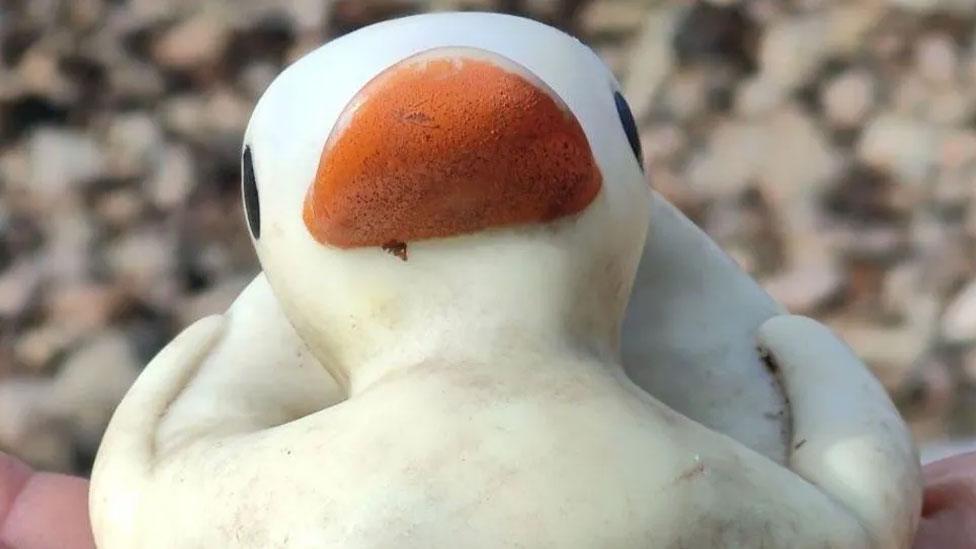Lost rubber duck found 400 miles away in Scotland 18 years later
- Published
- comments

Lost at sea: The Dublin duck has found a new home in Orkney
Filip,13, found what he thought was a normal rubber duck on his local beach in the Orkney Islands.
But it turns out the little plastic duck has quite a backstory.
After considering "chucking it away", Filip and his mum Marion looked closer and discovered that it's been missing for nearly two decades after vanishing from its home.
"It said world record duck race, Ireland 2006," Marion said. "After 18 years in the sea, it has even still got its number on the back!"
13-year-old Filip Miller with his quack-ing find
In 2006, people gathered in Ireland's capital city, Dublin, to try and break the world record for the largest ever plastic duck race.
Around 150,000 ducks were released, with the plan being that they would sail one mile down the River Liffey.
Well it's safe to say that one of these rubber ducks went rather 'off-quack' by at least 423 miles.
That's a small estimate of how far the duck would have travelled to get to Stronsay, one of Scotland's remote islands in Orkney, where it washed up on a beach.
WATCH: Martin finds out why plastic waste can be a problem (Pictures from Greenpeace, Caroline Power and Blue Planet II/ДѓЯѓДЋУН iPlayer)
What is the problem with plastic in the sea?
While duck races can be fun, there is a more serious side to them when plastic is released into the water and not collected.
Because plastic doesn't easily biodegrade, it can hang around for ages polluting seas and oceans where it can harm the animals and plants living there.
Read more: Recycling: Why products claiming to be тbiodegradableт might be misleading
The average plastic bag takes around 20 years to biodegrade, and for a plastic bottle this can take up to 250 years.
This is why many rubber duck races now make sure to collect their ducks before they make a bid for freedom.
Maybe it's time to leave the swimming to the real-life ducks?
- Published7 August 2022
- Published17 March 2020
- Published13 June
